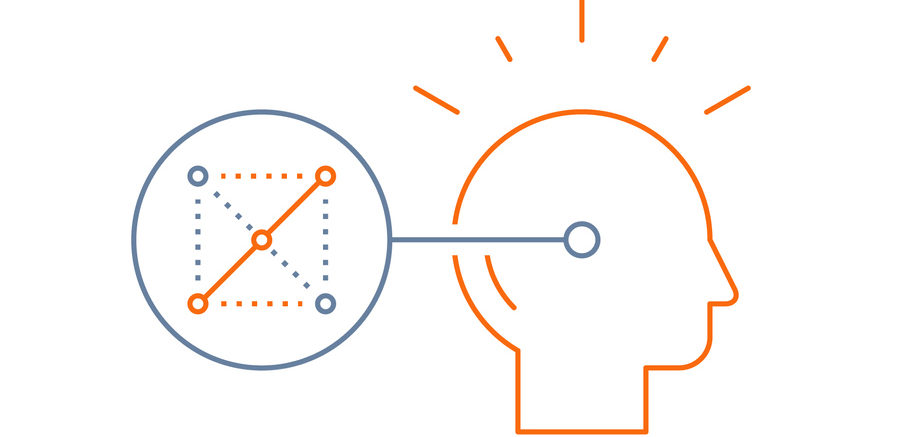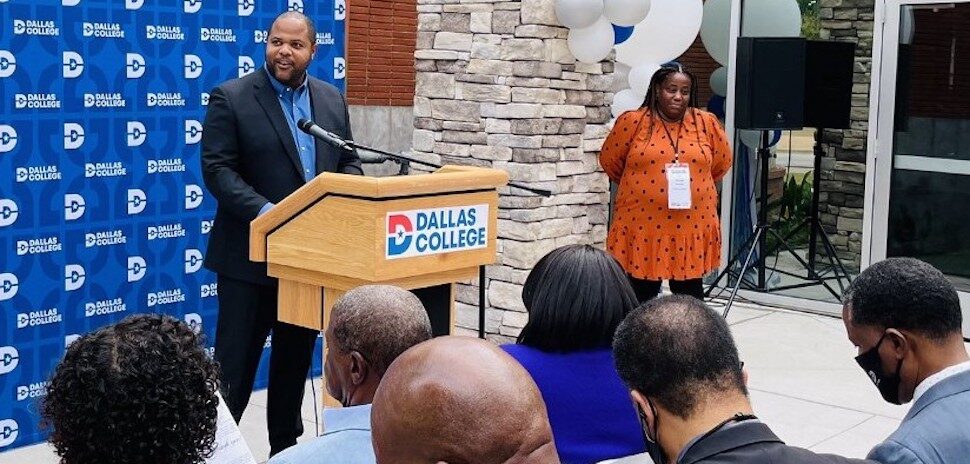![]() Every week, we do a little research of our own. We’re looking for scientists, professors, engineers, entrepreneurs—anybody, really—engaging in research and development across North Texas.
Every week, we do a little research of our own. We’re looking for scientists, professors, engineers, entrepreneurs—anybody, really—engaging in research and development across North Texas.
There’s plenty of good work being done. If you want to put R&D under your microscope, sign up for our e-newsletter.
Escape rooms help train pharmacy students at UNTHSC
The UNT Health Science Center in Fort Worth is taking an innovative approach to teaching its pharmacy students about problem solving and teamwork: escape rooms. It’s gamification intended to make better pharmacists.
The center said that two UNT System College of Pharmacy faculty members—Cheng Yuet and Brittany N. Palasik—created escape rooms in the form of a hospital room and an outpatient clinical room.
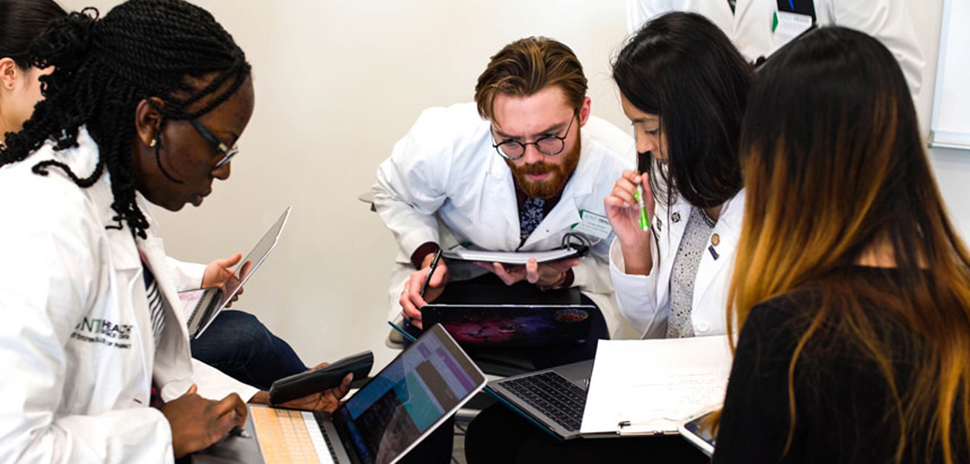
Pharmacy students at the UNT Health Science Center in Fort Worth work on solving puzzles to get out of one of the escape rooms created to teach them problem-solving and teamwork. [Photo: Courtesy UNTHSC]
Once in the rooms, students could only get out by working as teams to solve puzzles that were related to managing a patient with diabetes. The students had limited time, just 20 minutes to escape each room.
“It brought us a lot closer to understanding the real-life experiences we’ll face as pharmacists,” second-year pharmacy student Frank Ssentamu said in a statement. “The most important thing I learned was how to work together quickly as one team with the common goal of caring for the patient.
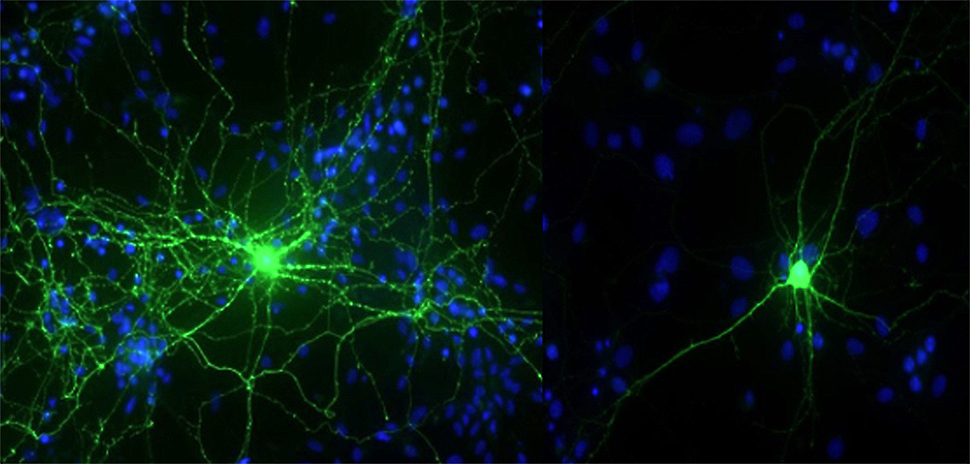
The images show a comparison of a normal neuron (left) and a neuron with a mutated UBE3B gene. A new study shows loss of this gene results in abnormal neuronal morphology and leads to the accumulation of certain proteins in the brain that can cause a severe autism-related disorder called KOS. [Photo: Courtesy UTSW]
Discovery may portend autism-related disorder treatment
UT Southwestern scientists now have a better understanding of potential treatments for Kaufman oculocerebral syndrome—a severe autism-related disorder—after geneticists discovered a molecular trigger for it.
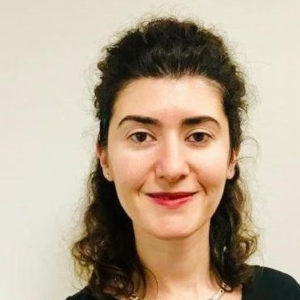
Dr. Maria Chahrour [Photo: Courtesy UTSW]
The discovery has enabled scientists to begin testing a possible therapy targeting a specific protein in the brain, according to release.
Also known as KOS, the syndrome is characterized by intellectual disability and lack of speech. The research done by UTSW shows the benefit of using modern genetic sequencing to better understand the network of mutations that underlie autism spectrum disorder.
“Researchers have already identified broad molecular pathways for different forms of autism spectrum disorder,” Dr. Maria Chahrour, a neurogeneticist who led the study that was published in the Proceedings of the National Academy of Sciences of the United States of America, said in a statement. “What we are working on now is defining specific pathways like this one that are actionable and can be targeted for therapies.”

Ramtin Madani, center, is pictured with students Edward Arthur Quarm, left, and Muhammad Adil. [Photo: Courtesy UTA]
UTA team vies for piece of energy competition’s $4M prize
A University of Texas at Arlington researcher is leading a team in a Department of Energy competition that focuses on improving the speed and efficiency of energy delivery through the nation’s power grid.
UTA said that Ramtin Madani, an assistant professor in the electrical engineering department, is leading a team in the Advanced Research Projects Agency-Energy, or ARPA-E, Grid Optimization Competition. The top 10 teams will share in the $4 million prize money, according to a release.
The effort is in collaboration with professors Alper Atamturk from the University of California-Berkeley and Ross Baldick from University of Texas at Austin. The UTA group is one of 18 teams, and the only one from Texas, to get $250,000 in funding for the competition, which is open to any qualified competitor, not only teams that are funded. The competition is a series of challenges.
“This is a departure from traditional routes to research funding which is motivated by other success stories such as the DARPA Prize Challenges,” Madani said in a statement. “The competition highlights the importance of computational sciences in energy efficiency and sustainability, so the advancements made in the framework of the competition could have lasting benefits and encourage people from other disciplines to work on energy-related problems.”
READ NEXT
![]()
Get on the list.
Dallas Innovates, every day.
Sign up to keep your eye on what’s new and next in Dallas-Fort Worth, every day.










